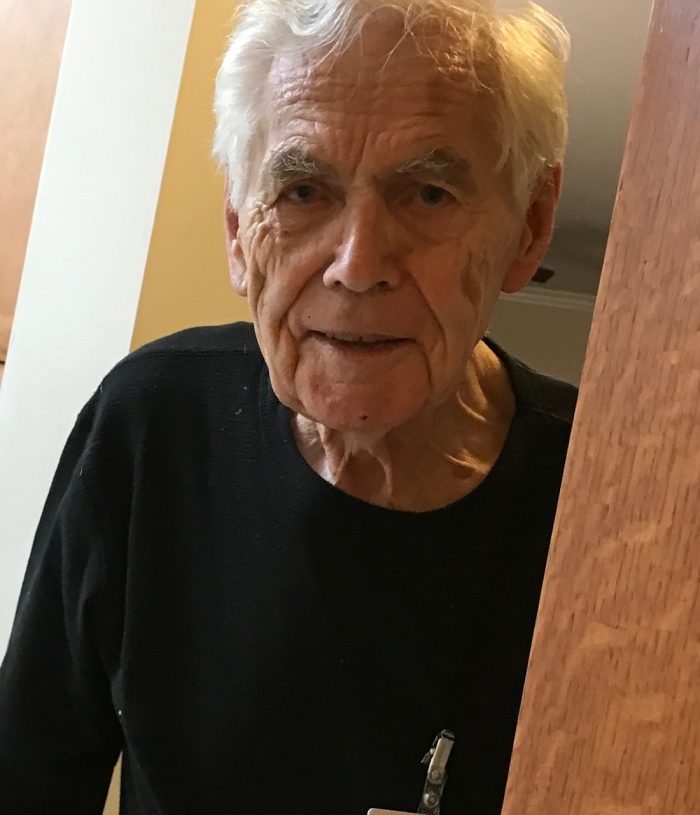Nursing homes and retirement communities are on lockdown to help prevent the virus from wildfire infection rates, but now it’s the social distancing that is killing residents.
Where is the love? Turns out all those song lyrics are right – we need love to survive.
The geriatric population already suffers from a lack of socialization and physical affection. Life partners are dead and gone, so the only physical touch is from family members who occasionally visit, and those special moments with the ever-entertaining grandkids – if they’re lucky.
Retirement communities are set up to maintain a good social network, provide physically and mentally stimulating activities, and a sense of community, all supervised. Now these people are locked into their apartments, many of them incapable of using the internet. They are chastised for walking the halls, when that exercise is what is keeping them alive.
I take my massage therapy students to the nursing home during our geriatrics section. Some students are afraid of entering an institute that brutally reminds them of their mortality. By the end of our time there, everyone is glowing. The students have beautiful, tear-rendering stories to tell of brief interactions with patients where touch is involved. I tell them, this is not about massage. This is about the power of touch. The power of attention. The power of being present with someone whose main interactions involve taking medicines and being rolled down the hall to the dining room. Entering a room and asking an elderly person if they want a massage will result in them fearfully saying no thank you. My students are encouraged to go in that room and connect in some way with touch and eye contact. Dementia patients may not be able to hold a conversation with words, but they sure do find peace in the moments when somebody is holding and acknowledging them in some way.
My 89-year-old father has been on a physical and cognitive downward spiral for the last six months, but this lockdown has hastened the decline. At first I welcomed the break of my obligations of being there every day, sudden ER visits, and confusion. I was spiritually and physically exhausted from his recent surgery that required a hospital stay followed by a week in the skilled nursing facility. Being ousted from his apartment created a set of problems I had not anticipated. He freaked out so badly that I had to put on a real song a dance to get him discharged against medical advice back to his apartment. While he was not physically ready to be at home, his mental deterioration was so fierce that it was better to hire 24-hour care so that he could return to his familiar surroundings and routine. That was eight weeks ago.
Flash forward to the coronavirus lockdown. A condolence card sits on the lobby coffee table because a spry 92-year-old neighbor has suddenly died. The Thursday evening gathering of fourth floor residents has been canceled. The gym and pool have been closed. The dining room is delivering meals. The only sunshine residents get is on their balconies, if they are lucky enough to have one.
I get phone calls all day and night, complete with paranoia, hallucinations, falling down, and dramas. It’s like having a toddler living in his own apartment across town, but worse, he’s capable of adult activities while I’m in charge of his finances and tax paperwork to boot.
Despite having nurses there for a portion of the day, I call him each morning to make sure he is up and taking the correct pills from his daily med box. He finds it necessary to race to the phone, and racing is not something he can do any more. The severe orthopedic collapse of his spine has rendered his right leg useless, so getting up from a chair takes time. He crawls because it feels safer than teetering around reaching for the cane or walker that he inevitably left in the other room. I call again mid-morning so he goes to his PT appointment. I call him again at 3:30 to wake him from his nap, because if he sleeps more than an hour, he is disoriented the rest of the evening, even after the nurse leaves. I call again at bedtime so I can walk him through his evening antidepressant to help him sleep and now an anti-anxiety med because this lack of routine and social interaction leaves him alone to freak out over everything in his life. I have to tell him to remove his compression socks, which he cannot put on alone. These are new because his lack of daily workouts means his legs are swelling. Now we have added another med for the water retention.
Despite all of this calling, he is confused, all day long. He thinks that I live there, but am hiding from him. Sometimes he insists that mom, who’s been dead eight years, is there in the night. He can’t remember that we are on lockdown for the virus, but instead I am ignoring him. He asks me to bring the boys to have lunch with him in the dining room, which is closed. His neighbors avoid him now because he can’t have a conversation without paranoia seeping through. A misunderstanding over the Sunday paper had him believing that he had stolen it from his friend’s doorstep, because he knows that he is doing and thinking crazy things. He says it’s like a half-sleep-half-wake dream state in which he has no control, but later recognizes what he has done. This adds to his anxiety, because he cannot even trust himself.
I call him to say that the nurse will be there at 12:30. He stresses over what he will have her do during that time. “How will I entertain her?” he asks, as if she is an unwanted visitor. He insists that he needs to be alone, yet during his alone time he calls to tell me that he has fallen or dropped his pill under the stove and has been crawling around for an hour trying to retrieve it, with pillows under his knees on the linoleum floor.
Rather than avoiding contact and visiting once a week, I have returned to daily visits. His paranoia has subsided, and his tenderness has returned. He insisted that none of his pants fit, so we tried every pair on, and they all fit just fine. That close proximity of helping him step in and out of his pants made me think that if I’m this close, I might as well hug him too. He’s not an affectionate man, but he froze, leaned into me, and gave me a gentle pat.
But hey. He hasn’t contracted the COVID-19







Read 0 comments and reply